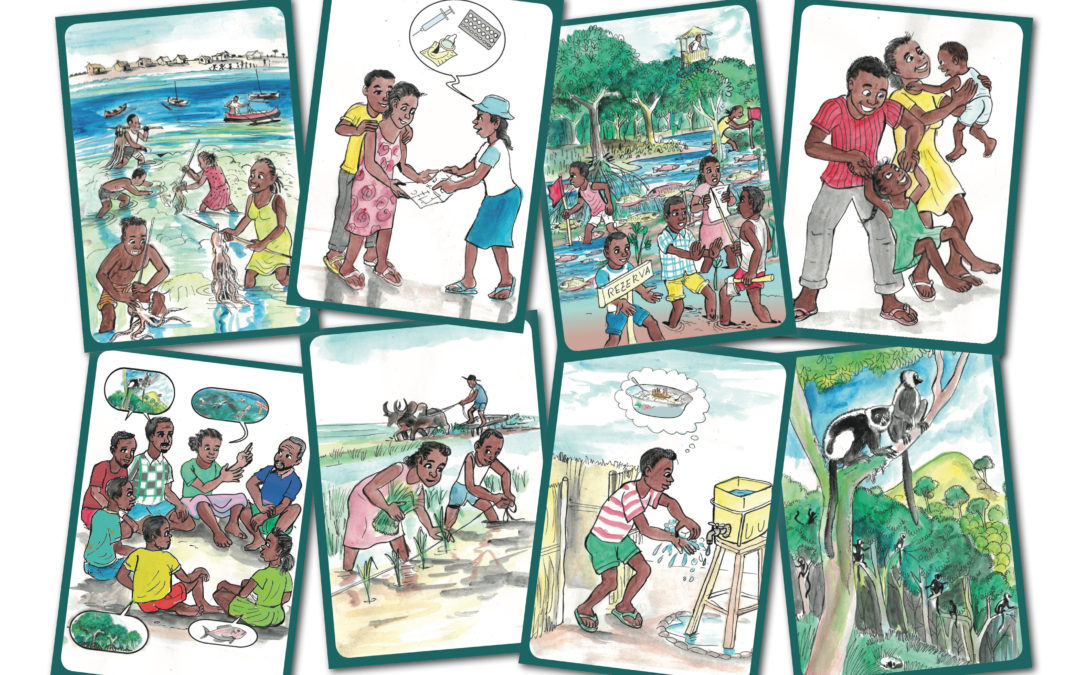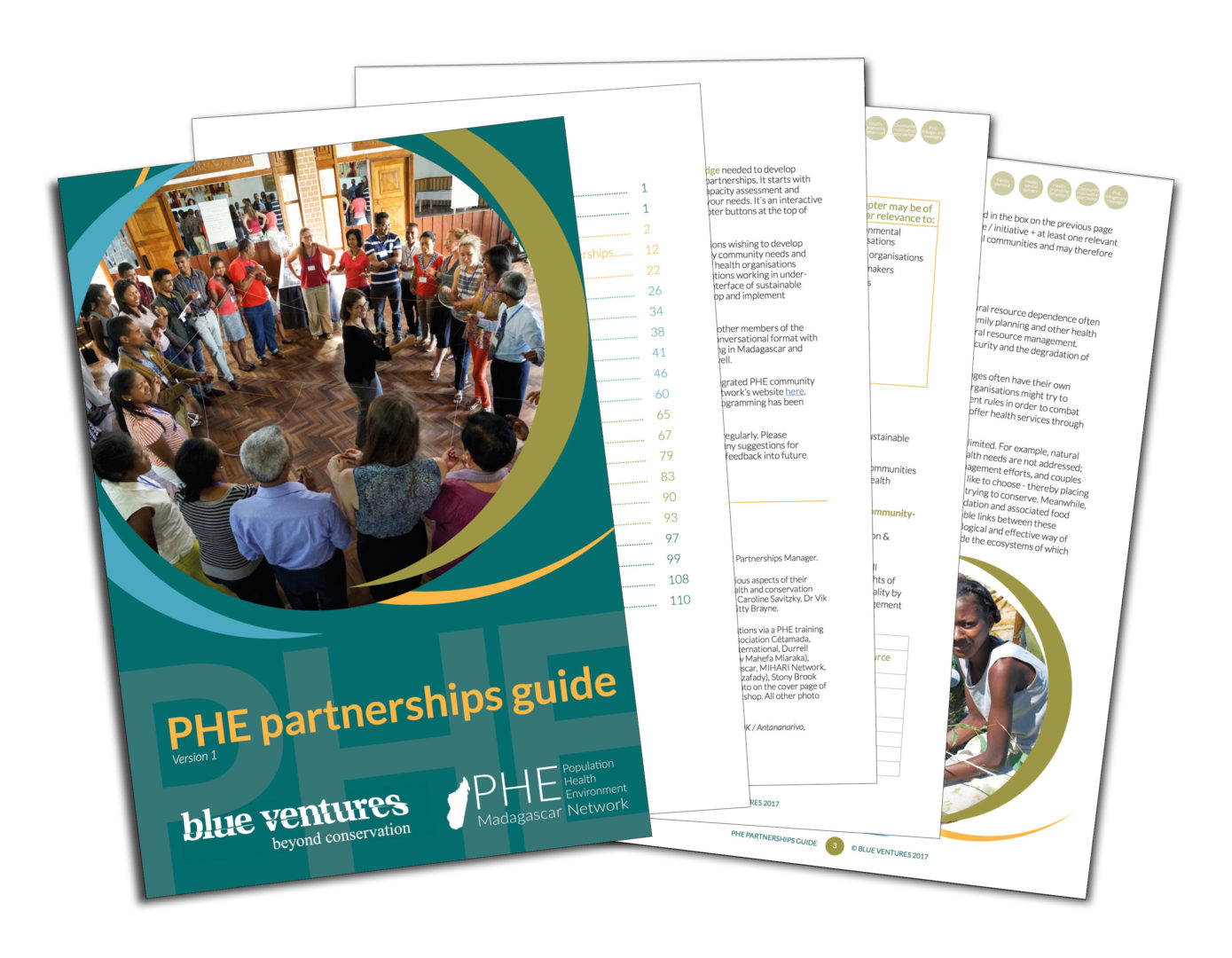In response to requests for technical support from environmental organisations collaborating with health service providers in isolated and biodiverse areas across Madagascar, we’re delighted to share this comprehensive PHE partnerships guide and integrated PHE community outreach tool.
“Although there are already several fantastic PHE programming manuals and toolkits, as PHE partnerships between environmental and health organisations are proliferating here in Madagascar, we identified an unmet need for a resource designed specifically for organisations wishing to develop competencies for effective cross-sector collaboration.
We wanted to produce something that would be accessible to both the managers and the community-based staff of such organisations, and that would walk them through each step of developing and implementing a collaborative PHE initiative in detail. Much of the guide is drawn directly from our work supporting different organisations in their PHE journeys, addressing common questions in a conversational format. We’re very much considering it as a living document, so we look forward to receiving and incorporating feedback from all of its users in due course.”
“Integrated community outreach can be considered as the glue that binds all of the components of a PHE initiative together; it ensures that the different workstreams within a PHE initiative aren’t implemented in parallel but rather complement and proactively reinforce each other. Integrated community outreach is also key to advancing gender equality in natural resource management and family health.
While there are many excellent health-focused and environment-focused community outreach tools available in Madagascar already, we identified an unmet need for a practical integrated community outreach tool that would enable environmental and health organisations to facilitate concrete discussions with communities about PHE linkages.
We’re offering these PHE story cards to all organisations interested in trialling them with community members at their PHE sites, and we’ll be developing them further in line with all feedback received. We hope that they’ll prove to be a valuable resource for organisations endeavouring to do truly integrated community-based PHE work, and we’re open to commissioning additional illustrations for use in cultural and environmental contexts beyond Madagascar.”


